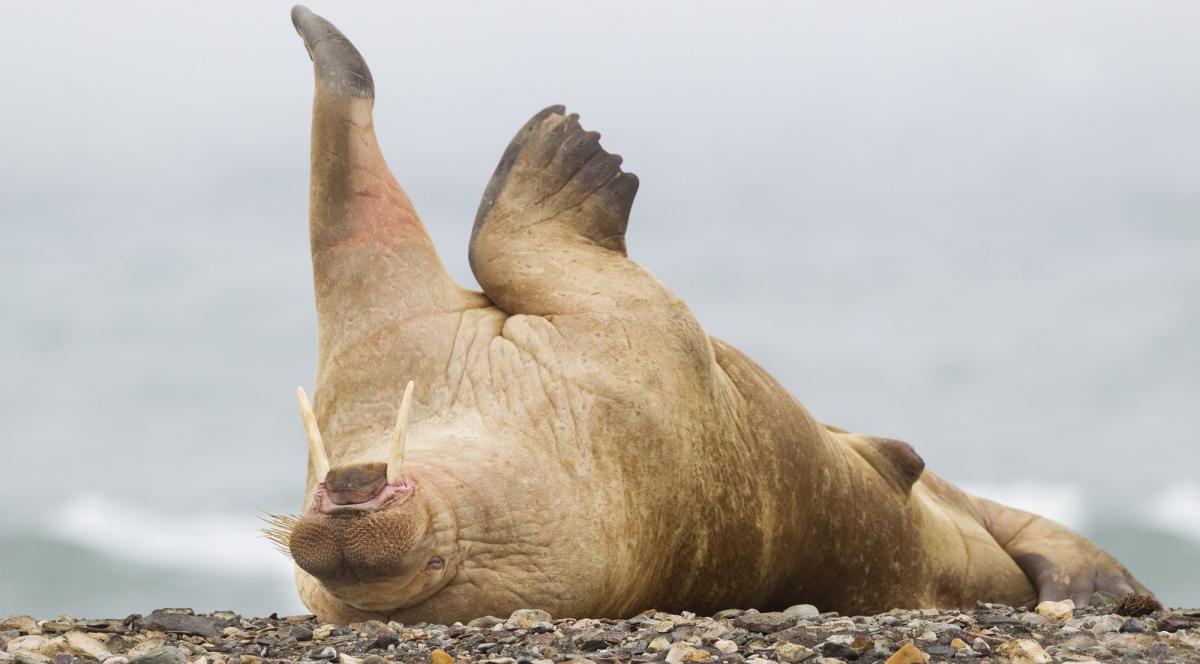March 16, 2016
Why You Should be Eating Like a Walrus
Estimated reading time: 0 minutes
Looking for advice on healthy eating? Oceana Canada has a tip, eat like a walrus! They have a perfect beach body, ideal for playing in the water and laying around to catch some rays. We can certainly learn from these adorable creatures and emulate their ability to eat well.
Walruses eat a nutrient-rich diet that is as healthy for them as it is for the ocean. They eat a wide range of invertebrates, such as crustaceans, octopuses and clams. To find these bottom-dwelling invertebrates, walruses drag themselves along the ocean floor in search of food, and because they eat small animals, they must have a lot of them. Each time a walrus dives (with a dive lasting between five and 20 minutes), it can consume upwards of 60 clams. But eating like a walrus does not mean you need to perfect your diving skills, because we can dine like these incredible marine mammals with just a visit to the grocery story.

Health Canada recommends eating at least two servings of seafood a week, which will allow you to get the nutritional benefits that are found in food sourced from the ocean. Seafood is rich in nutrients and filled with Omega-3, which are healthy fats. Omega-3 can help lower the risk of heart disease, it is linked to brain development in infants and research has shown it can play a role in lowering the risk of cancer, dementia, Alzheimer’s disease and depression.
Not all seafood is created equally, however: some seafood has a bigger environmental impact and often can’t be consumed sustainably. By eating fish lower on the food chain, with forage fish species such as sardines and anchovies, and invertebrates like oysters, mussels and clams, we can dine on seafood that reproduces more quickly, requires fewer resources to grow and often has higher levels of Omega-3. Because these species are lower on the food chain, they also have little of the toxic mercury that can be found in some of the ocean’s top predators, such as tuna and swordfish.
To find more seafood that is healthy for the oceans, check with your local grocer and favourite restaurants to see if they buy from sustainable fisheries, or look for the SeaChoice logo for ocean-friendly seafood. Also look for wild caught fish certified by the Marine Stewardship Council (MSC) and farmed fish approved by the Aquaculture Stewardship Council (ASC).
Next time you are choosing what to eat, think like a walrus and opt for clams, oysters, mussels, and sustainable seafood that will help keep you and our oceans healthy!
You can also protect our oceans by becoming a Wavemaker with Oceana Canada.

